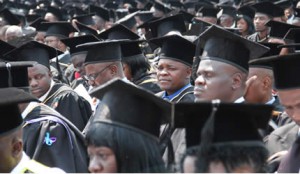
The Sunday Mail

 Harmony Agere
Harmony Agere
“In the realm of using education as the ultimate tool for our socio-economic transformation, deliberations are at an advanced stage to start a College of Medicine at Midlands State University (MSU).”
The above statement was delivered by the MSU Vice-Chancellor, Professor Ngwabi Bhebe, at a business conference held at the institution last week. It signalled the dawn of a new era in the country’s troubled health sector.
MSU’s College of Medicine will become the second medical doctor-training institution in the country after more than 50 years since the University of Zimbabwe (UZ) opened doors to the country’s first medicine students in 1963.
Experts say Prof Bhebe’s proclamation gives an opportunity to the Government, policymakers and various other stakeholders to reflect on why it took the country over five decades to open another medical school when the demand for doctors has been huge.
The development will be a milestone for the country and will fill a skills gap that has caused serious problems.
The UZ has been struggling to provide adequate doctors for the nation.
With the state of the economy making it difficult for Government and the private sector to bear the cost of the doctors’ needs, many of the much-needed professionals end up leaving the country for greener pastures.
The departure continues to create a huge gap and the Government is making efforts to address the challenge.
Research shows that Zimbabwe is still below the World Health Organisation’s recommended doctor-to-patient ratio of 1:500. Varying reports show that the country’s ratio is currently sitting between 1:5 000 and 1:8 000.
The anticipation is that the opening of another medical school will address a plethora of problems confronting the country. Medical experts say the development is good not only for the health sector but also for the economy which needs a vibrant health delivery system.
However, some commentators say a deeper introspection into the development is needed to ensure that the MSU’s ambition becomes a success.
Questions as to whether fundamentals that guarantee quality will be put in place before the college is operational have also been raised by experts.
They have said it is critical for the MSU to come up with internationally recognised infrastructural and curriculum formulations so as to ensure that standards are not compromised.
Zimbabwe Medical Authority spokesperson Dr Douglas Gwatidzo welcomed the opening of another medical school but emphasised that a lot needs to be done before the institution can be functional.
“This is a welcome development, provided all the fundamentals that ensure and guarantee quality are put in place before the institution opens its doors,” he said.
“For instance, the institution that offers such training must be attached to a hospital that already has the infrastructure and personnel so that the students would get the necessary exposure.”
According to Dr Gwatidzo, all the hospitals in the Midlands province do not have such facilities in place. He said the Government must ensure the training institution meets internationally recognised standards.
Dr Gwatidzo added that the global village demands that doctors are well versed with all the diseases that affect the human race. Research conducted by The Sunday Mail on the UZ school of medicine and other medical schools revealed that a standard medical school should have at least a theory teaching campus and a clinical department with teaching hospital facilities that are either situated on campus or in different locations.
The University of Zimbabwe has its College of Health Sciences situated on the main campus with the other annex at Parirenyatwa Hospital.
Most clinical departments must be supported by Drug and Toxicology Information Service, Multi-Disciplinary Teaching Laboratories, Multimedia Resource Centre, Mechanical and Electron Workshops.
Investigations show that with the global technological
advancement, a medical school cannot operate without state-of-the-art laboratories and lecture theatres.
A library and a multimedia resource centre are some of the facilities that ensure quality through providing a platform for learning, research and outreach purposes. Other schools of thought suggest that a college of medicine should also have the capacity to offer degree programmes in Dentistry, Pharmacy, Nursing Science, Medical Laboratory Sciences, Rehabilitation, Radiology and Health Education and Health Promotion, among others.
Heather Magwenzi, an 18-year-old aspiring medical student who is doing her Advanced Level at Harare High School, said the opening of more medical colleges would be a major development for Zimbabwe.
“The country should open more medical schools since that will allow more students to take up the courses,” she said.
“A lot of students who had a passion for medical science programmes were denied the opportunity to follow their dreams because the places were limited at UZ.”
However, renowned academic Prof Winston Madzitire said there was no need to worry about the quality of the curriculum at the MSU since all medical schools must conform to certain international standards.
“All medical schools are subject to internationally set standards, the same applies to the curricula they use,” he said.
“In fact, the curricula are almost similar. In our case, the MSU will apply the same model as the one that was implemented by the UZ.”
In Zimbabwe, students who qualify for medical school should have passed with “A” grades in at least 3 A-Level science subjects.
According to experts, the requirement has enabled Zimbabwe to continue producing competent doctors through the years.
The MSU will be faced with the similar task of producing not only internationally recognised medical doctors but a breed that will not compromise medical ethics.
Last year, the Medical and Dental Practitioners’ Council of Zimbabwe, which regulates the conduct of medical personnel, suspended 38 doctors for incompetence, unethical conduct and unprofessionalism.



